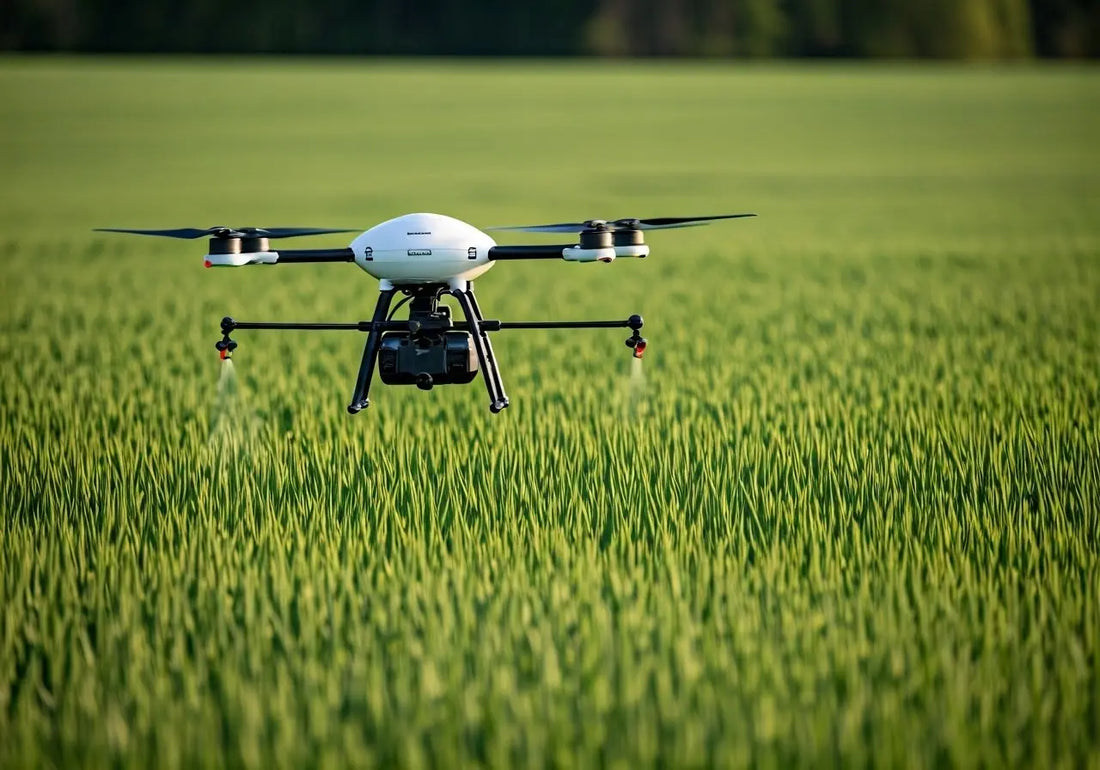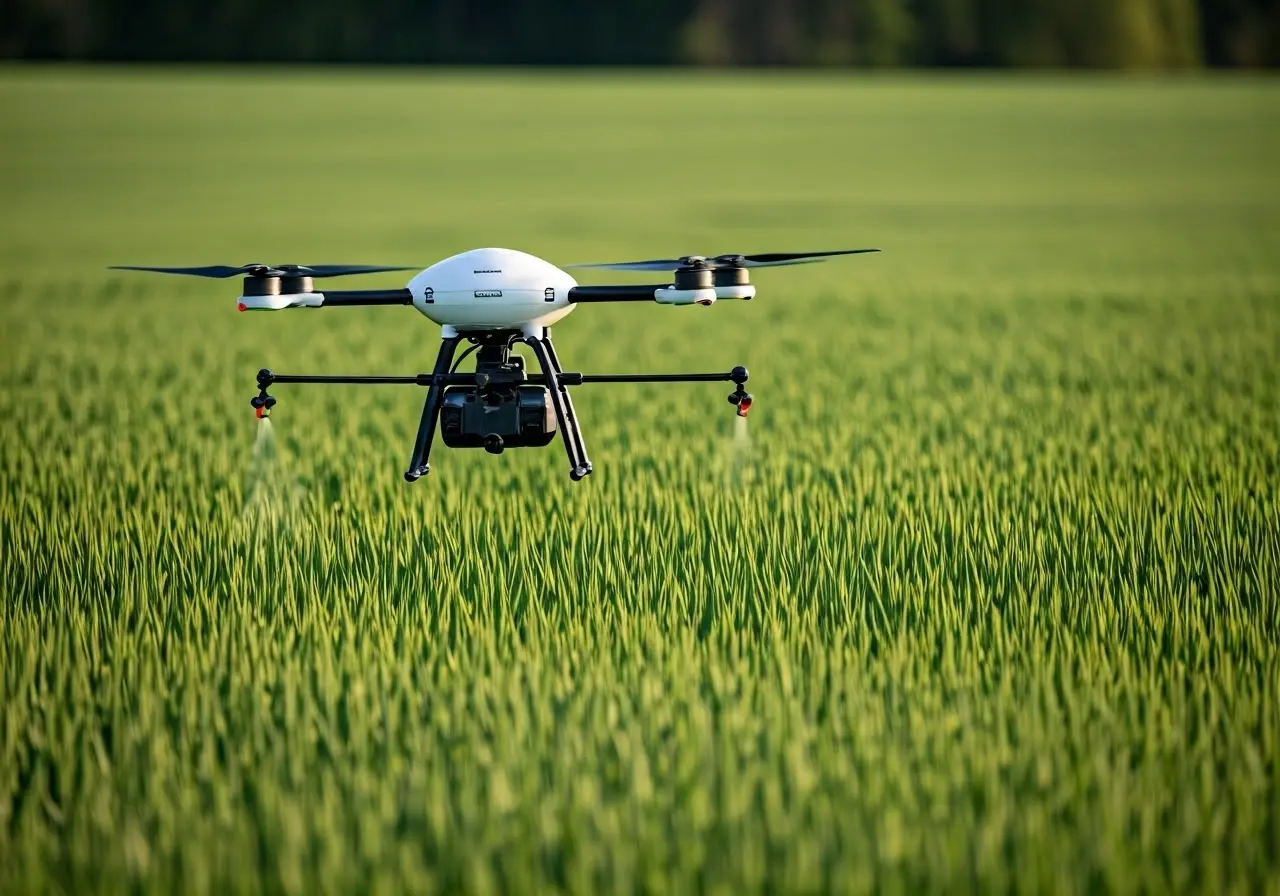
How Agricultural Spraying Services Revolutionize Crop Management
Share
In recent years, agricultural spraying services have emerged as a game-changer for modern farming. By leveraging cutting-edge technology, these services enhance efficiency, protect crops, and ultimately contribute to higher yields. In this article, we’ll delve into how these services are transforming crop management practices.
Understanding Agricultural Spraying Services
Agricultural spraying services involve the application of various substances such as fertilizers, pesticides, and herbicides to crops. These services are crucial for ensuring the health and productivity of crops by controlling pests and diseases and providing essential nutrients.
Crop spraying technology has advanced significantly, incorporating various equipment types like drones and automated machines that tailor spraying to each field’s specific needs. For instance, AWSM Farming Solutions highlights how crop spraying machinery is designed to address various terrains and crop types. These innovations allow farmers to achieve precision agriculture, reducing pesticide use and enhancing crop output.
In contrast to past methods where planes delivered chemicals broadly over fields, leading to wastage and potential harm to the environment, today’s methods are remarkably efficient. Modern agricultural spraying services, for instance, include using quad bikes and hover over the fields to ensure precision. Such precise spraying minimizes chemical runoff and preserves beneficial insects, leveraging technology for the best balance between efficiency and environmental safety.
Agricultural spraying services deliver significant benefits by specifically targeting the needs such as crucial nutrients or pest control, which supplements natural defenses against crop stressors. This aid is indispensable, especially in areas where the land’s natural fertility or pest pressures make cultivation particularly challenging. Therefore, understanding these service dynamics can empower farmers to strategize the best approaches for healthier, more productive crops.
Technological Advancements in Spraying Techniques
Recent technological advancements have led to more precise and efficient spraying techniques. Technologies like drones, GPS mapping, and automated sprayers allow for targeted applications, reducing waste and improving environmental impact.
Drones, for example, are transforming the way we manage and protect crops. A Comprehensive Guide to Implementing Drone Pest Control explains how drones facilitate early pesticide application. With high-resolution imaging, these tools can detect infestations precisely, allowing for targeted interventions that protect yields and reduce chemical use—a win for the farmer and the ecosystem.
Innovations such as multispectral imaging enable farmers to monitor stress in crops before it becomes visible to the naked eye. This technology predicts future crop health and clearly outlines when intervention is necessary, therefore preventing unnecessary pesticide applications and conserving resources. This predictive power is a hallmark of modern agricultural spraying services, embodying a sophisticated shift towards sustainable farming practices.
Smart technology integrated into agricultural spraying promises remarkable improvements in efficiency. Embedded AI helps farmers cultivate precise schedules and strategies tailored to their unique contexts. Techniques like variable rate technology in drones allow for application that varies across a field, optimizing the amount of chemicals depending on specific conditions, which further emphasizes these technologies’ sustainability and resource-saving potential.
Benefits of Professional Spraying Services
Professional spraying services offer numerous benefits, including higher crop yields, reduced labor costs, and enhanced pest and disease control. They provide expert knowledge and specialized equipment, ensuring effective and safe application.
By partnering with professional spraying services, farmers can access specialized machinery and expertise that are pivotal in optimizing farm operations. According to AWSM Farming Solutions, experienced operators with the right equipment can perfectly time and accurately apply treatments, crucial for aligning chemical applications with the particular growth and pest life cycles. This careful alignment makes sprays more effective, supports crop health, and ensures high yield potential.
Besides supporting crop health, these professional services enhance labor efficiency by automating processes that are time-consuming or hazardous if done manually. This automation allows farmers to focus manpower on other vital areas of farm management, optimizing the productivity of both land and labor resources.
Furthermore, spraying services emphasize precision in protecting crops while minimizing environmental impact. By using state-of-the-art technology and up-to-date agricultural knowledge, these services ensure that the least amount of chemical necessary is used, preserving the surrounding ecosystem and fostering a more sustainable agricultural practice which attracts environmentally-conscious consumers.
Sustainable Practices in Agricultural Spraying
Sustainability is a key consideration in modern agriculture. Spraying services are adopting environmentally-friendly practices, such as using biodegradable chemicals and implementing precision agriculture techniques to minimize environmental impact.
Sustainable farming goals are increasingly aligned with technological innovations. The use of drones for pesticide application has proven to be resource-efficient. They help conserve water by using adaptive spraying techniques that adjust based on real-time data collected from crop conditions, precisely guided through GPS.
Minimizing the use of chemicals without compromising on effectiveness is one of the sustainable benefits of modern spraying techniques. Drones can operate under optimal conditions only, thereby reducing the risk of pesticide drift, which protects neighboring areas and maintains ecological balance. This smart use of resources is essential for preserving biodiversity and soil health, preventing long-term ecological damage and fostering a harmonious relationship with nature.
With sustainable methods, farms are not just preserving today’s productivity, but also building resilience for tomorrow. Techniques that reduce carbon footprint, like switching from fuel-dependent machinery to electric-powered drones, are essential for addressing broader environmental concerns and reinforcing global sustainability commitments.
Challenges and Considerations for Farmers
Despite their advantages, agricultural spraying services come with challenges, including cost, access to technology, and the need for training. Farmers must weigh these factors carefully to make informed decisions about integrating these services into their operations.
The initial financial investment remains a significant hurdle, particularly for small-scale farmers. High upfront costs of drone and automated technology can place a strain on tight budgets. However, the long-term benefits such as decreased pesticide use and increased yield must be considered as significant offsetting factors.
Navigating the regulatory landscape is another challenge, as legal requirements for drone use in agriculture vary by location. Farmers must ensure all operations comply with regional laws. Partnering with agricultural service providers that offer consultation and management services can make regulatory compliance more attainable.
Technical expertise is also crucial; operators need proper training to handle sophisticated equipment effectively. By investing in education and skills development, farmers can maximize their ROI on these high-tech investments while minimizing risks of operational mishaps or inefficiencies.
The Future of Crop Management with Spraying Services
Agricultural spraying services have undeniably reshaped the landscape of modern farming. By integrating advanced technology with sustainable practices, farmers can protect their crops more effectively and efficiently than ever before. The evolution of spraying methods not only boosts productivity but also contributes significantly towards environmental conservation. As we look towards the future, these services will likely continue to play a pivotal role in agricultural innovation.

